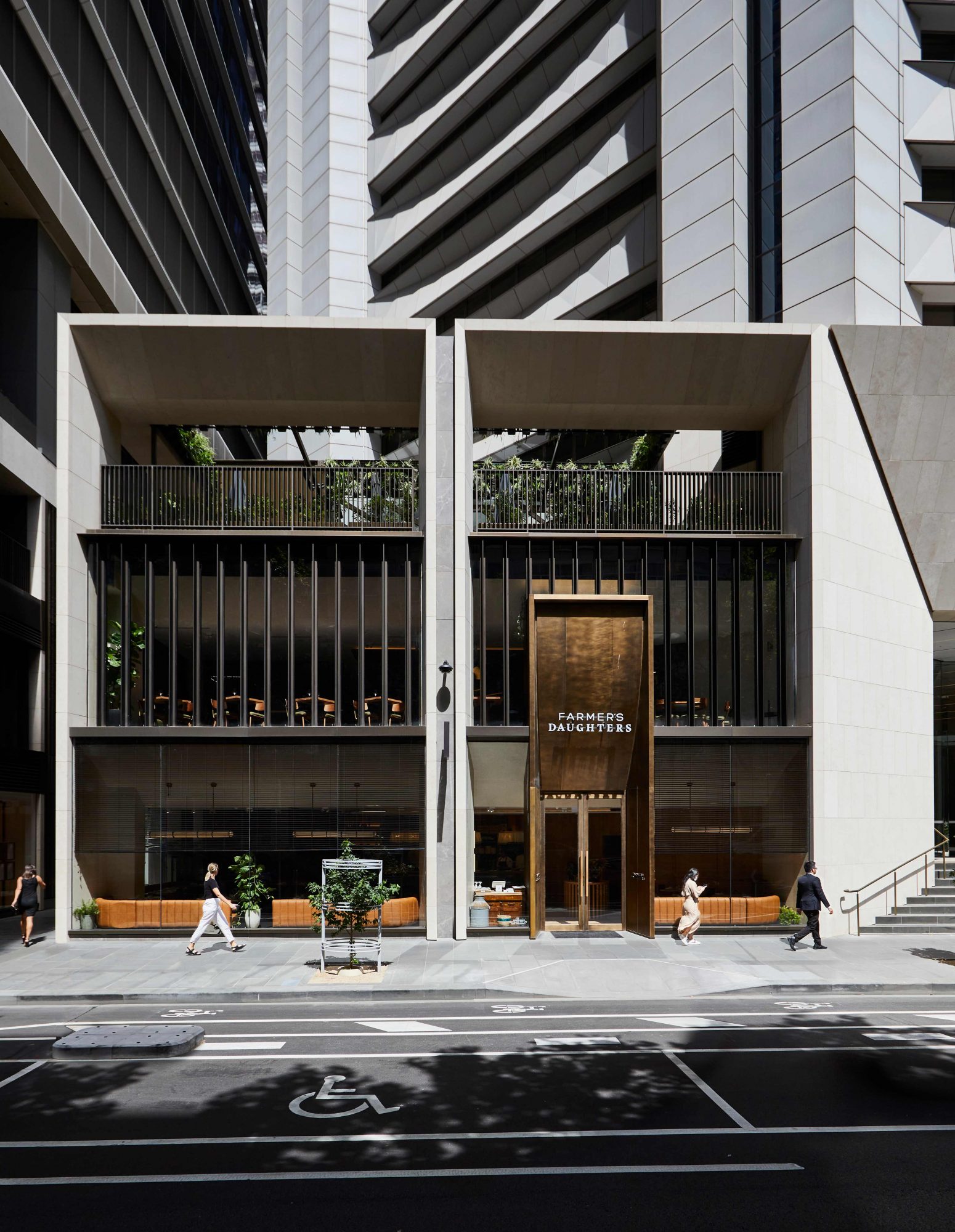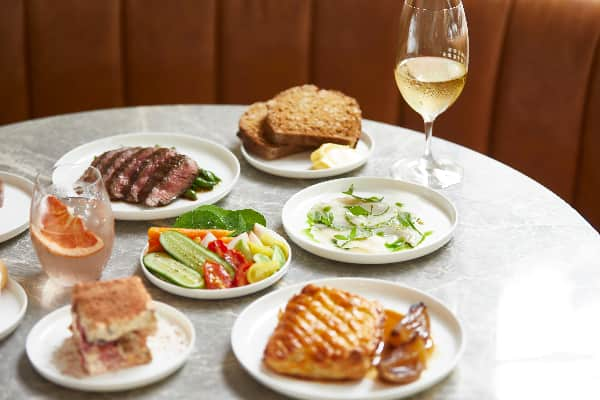
What really kicked off this adventure for me, was fatherhood. Lucas, my first son, was born three years ago and I realised that I wanted to give him the same sense of place that I’ve always had. I’m Peruvian. I consider Australia home and I love living here, but I am still Peruvian. I’ve traveled and worked all around the world, but the one thing that always gives me a sense of purpose is that I know where I come from and what I’m representing. Where I’m from gives me an identity that keeps me together, always. My wife is from Spain and she has that same sense of identity with her country. Now, we have two sons; Lucas and Gonzalo and they’re not Peruvian, they’re not Spanish, they were born in Australia. They’re Australian, they’re Victorians.
Before they were born, I felt this inherent responsibility to give them an identity, and provide them with a connection to where they’re from. I wanted them to feel that same sense of place and identity that my wife and I do from our respective countries. I think it’s really important for a person’s growth and individuality for their “place”, the place they live and they feel they belong in, to be part of their identity development.
To do this, I knew that I needed to deeply explore my own connection with Victoria. I needed to understand where I was living and where my sons were going to be born so that they could grow up with that assurance. This moment for me was a huge push to discover more about Victorian produce, local produce, the produce I’d always worked with but didn’t know enough about.
Obviously, as a chef, there is already a huge amount of respect for the ingredients you use. They’re our tools; they help us to create. We’d be nothing without our ingredients. But when you’re first starting out, when you’re young and hungry and in a hurry to work harder, produce more, and constantly create—you don’t think about where everything comes from so much. I didn’t have as much knowledge about waste, or the breathing space to learn about the full-circle from farm, to kitchen, to table.
My journey to discover Gippsland started around 4 years ago.
Paul Crock, a Gippsland beef farmer introduced me to Gippsland by inviting me to stay for a weekend at his farm. He had been insisting for a while. “You have to come to the farm!” he’d say, every time we spoke. At the time I was very busy with Pastuso and life but I had a hunger to explore and get out of the city, so I accepted his invitation.
I still remember the day he came to pick me up. I’d been filming since 5:30am, I’d done a massive shift the day before and so by midday when he came to pick me up from the restaurant, I was exhausted. As soon as we were on the road I fell asleep. When I woke up, we were in Gippsland, on a road lined with Eucalyptus gum trees. It immediately reminded me of trips I went on as a boy with my family in Peru. From the coast to the Andes and Sierras we have roads like that that are surrounded by Eucalyptus, and that triggered memories in me. I felt immediately connected with Gippsland. I knew this would be a place that I could learn a lot from.
I was blown away by the diversity of geography, micro-climates and the variety of ingredients Gippsland produces. Gippsland has got coast, mountains, and lakes, and its sheer vastness is pretty breathtaking.
I met the most incredible people.
Phillip Jones, the owner of Bass Phillip wines, invited me into his shed, bottle of wine in hand, and told me about his 10-year plan. I was so impressed—who has a 10-year plan!? He told me he wanted to sell his first bottle of Burgundy in his 10th year. He sold it on his 11th. That moment, although I didn’t know it at the time, represented the passion, dedication, specialisation, and breadth of research that all the farmers in Gippsland have. The same story links into every farmer I met, and continue to meet.
David Jones was another farmer I met in Gippsland and is now one of my partners at Farmer’s Daughters. He’s believed in the concept from the start, and we’ve been developing it for 4 years. David runs The Garlic Festival in Meeniyan. He put Meeniyan on the map, now bringing 10,000 to the town of 600 every year. I’ve been to every garlic festival with a pop-up campfire kitchen, roasting whole pigs and lambs. Each time I was there, I fell more and more in love with the place and wanted to share it with as many people as possible. I also wanted to share the beautiful produce with city people, business people, and tourists.
In saying that, Farmer’s Daughters was never supposed to be a restaurant. First and foremost, it was to promote the region of Gippsland. Originally, I thought it would be an ongoing concept that would create and organise events in Gippsland. Then, once we’d done a few events, we wanted something more permanent and thought, let’s find a farm and create an actual farm to table space. But as I was meeting more and more people I realised, I’m not a farmer; I don’t know anything about farming. Business-wise, it would have to be destination and seasonal. As much as it’s still a dream of mine, I didn’t have the resources and I’d met a whole lot of farmer’s that I could count on. So, I left the farming to the farmers and took what I know; hospitality. And so the concept grew. We wanted to create a space that brings Gippsland to Melbourne, in every way, triggering a sense of place through food, stories, colours, wine, take away produce and fresh knowledge.

Creating a true farm to table concept is difficult, because the produce has to come from so far away. We worked on finding produce and farmers for the past two years, chatting to them about how to create a supply chain from Gippsland into the city. Luckily, farmer’s are very community driven people. They fix each other’s fences, they come over when there’s a water leak, they swap produce… they’re a family. So, we applied that community to our system, working out a way that farmers can carpool each other’s produce to us, taking turns on different weeks and working geographically.
We also don’t demand stuff. We don’t have a list of ingredients that we need without question each week. We’re in constant communication with the farmers so we can prepare our menu; they tell us what they’re bringing and we adjust our menu accordingly.
Today, we got a delivery of hand-dived Konbu. We asked Andrew from Snowy River Station if his urchin divers could get some for us, and sure enough; we have enough for the whole week, picked a couple of days ago and beautifully dried out ready to be used. You have to be imaginative, you have to be willing to take risks and be spontaneous and that isn’t easy. Instead of the farmers being flexible for us, we’re being flexible for them. They have a farm, an entire operation that works 24/7; there are no days off and they know their produce best. The best way to buy their produce, is to be guided by them. Once you earn their trust and they see the justice we’re giving to the products, that’s when we can inspire each other and start to work together.
It’s also about finding space for the whole ingredient, which sometimes means parts of the product that people aren’t familiar with seeing on a menu. It’s exciting, but it encourages open-mindedness. It’s also about charging what the product is worth. Mostly, it’s cheaper to buy imported food than to buy local, because of the volume and economy of scale. Thankfully, people are starting to understand the cost of things and how important it is to value the product by paying for what it’s worth. I think the reset that was 2020 has helped in some way. During lockdown, so many people were consuming more locally. They were learning to eat different things, and get comfortable with the unfamiliar; but it’s a slow process, you just have to be willing to learn.
I would love to see more farm to table restaurants in cities. It’s difficult, because to be doing it on the scale we are, you really need to start from scratch. It has to be a part of the concept, the kitchen, the communication, the staff… everything. You have to be passionate about it, because it’s a lot of work and only if you’re willing to invest, will it start to pay off.
We have some amazing people on board. Matt Jensen our Sommelier, who spent two months in Gippsland going to every winery and making relationships with winemakers. Scott Poynton, our VM, shares my passion and vision. David Boyle our Head Chef, continues to develop the concept more and more and put a bit of himself on the menu. Nele, our Bar Manager, foraged for all of her cocktail ingredients in Gippsland. Giulia, who is managing our deli with her amazing charisma and passion. I could go on. We’re a family, this is our little house (in the middle of two monstrous towers) and we want to invite everyone that walks in to be a part of it and take a little bit of Gippsland with them forever.








